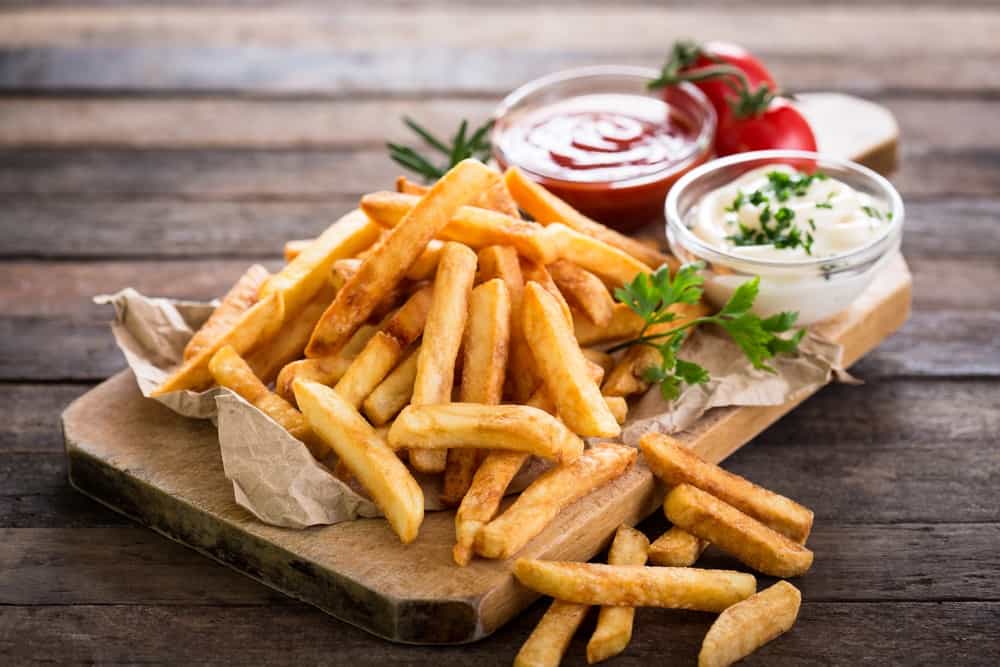
Nowadays, people can eat French fries for just about any meal of the day. People love them so much that according to National Geographic, an average American eats approximately 30 pounds of French fries in just a year. That’s the weight of a two-year-old child! But most people don’t know that there are at least 30 types of French fries!
French fries had been around for quite some time now. They were even supposedly used in Belgium as fish substitutes back in the 1600s. So even in those early days, people know just how filling and versatile this dish is. This brings us to our list of 30 types of French fries that you just have to try. Maybe a pound of each? Bon appétit!
1. Regular Fries
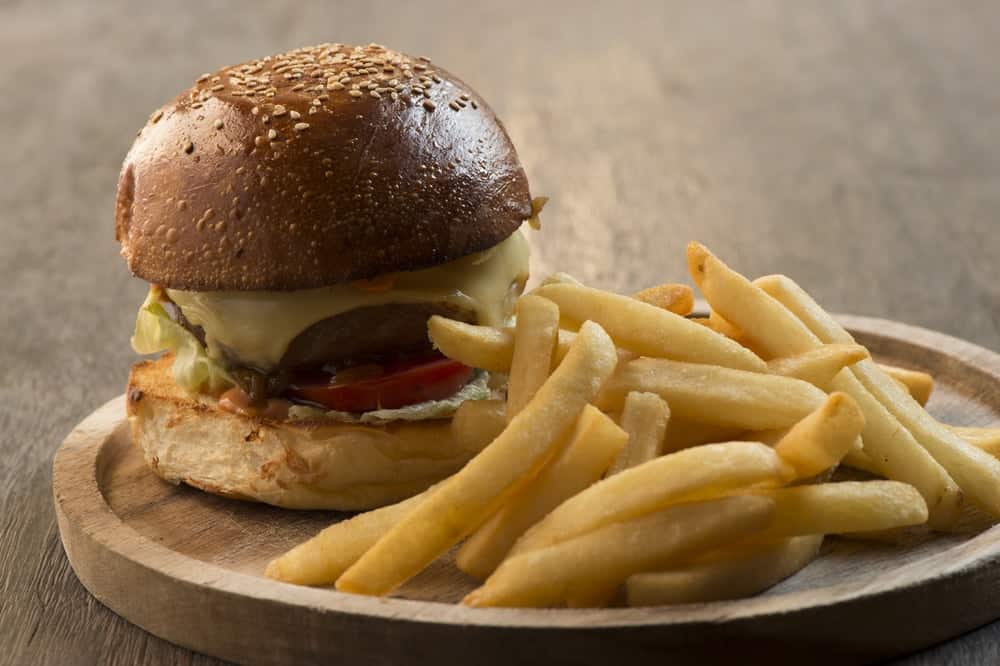
These are the typical fries you think of first when you see the words “French fries” on any menu. They’re cut to a medium thickness (somewhere between 1/8- and 1/4-inch if you want to get specific) and deep-fried in a neutral-flavored oil with a high smoke point, like a vegetable, peanut or canola oil. Crispy on the outside, soft and fluffy in the middle, and seasoned simply with salt, regular fries are the average of all other styles of fries, but when they’re done really well, there’s nothing average about the amazing taste-texture combo they offer.
2. Steak Fries
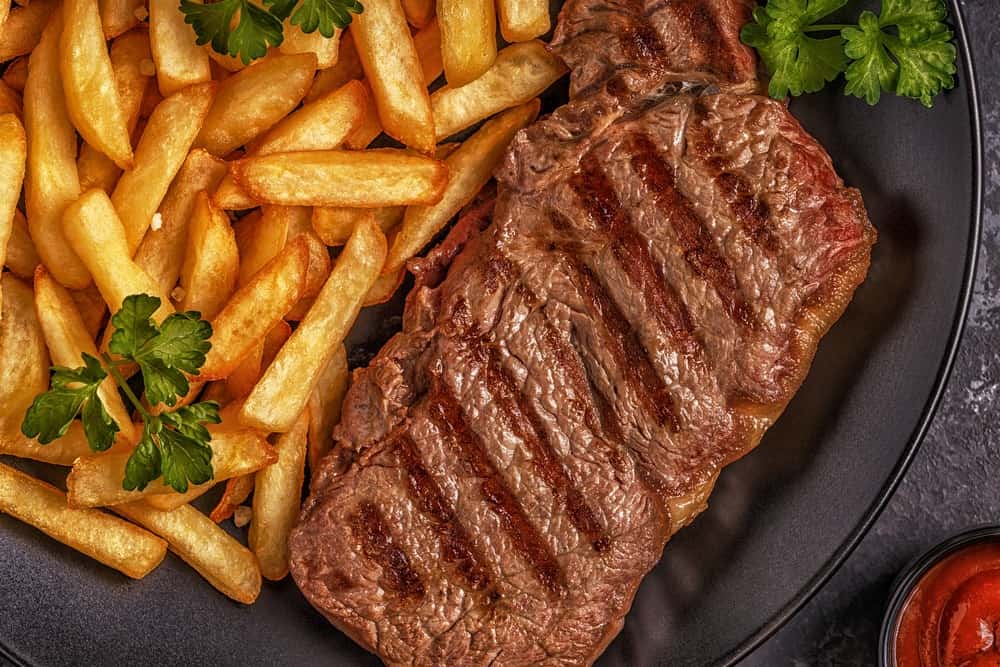
Nobody knows for sure why steak fries are called that. It could be because the style of thick-cut fries is often served alongside steak or because their slab-like shape somewhat resembles a steak. It doesn’t really matter – all you need to know is that steak fries are delicious, deep-fried to a crisp but with enough volume to promise soft, fluffy potato on the inside. Plus, their shape is great for dipping into ketchup or any other sauce of choice.
3. Shoestring Fries
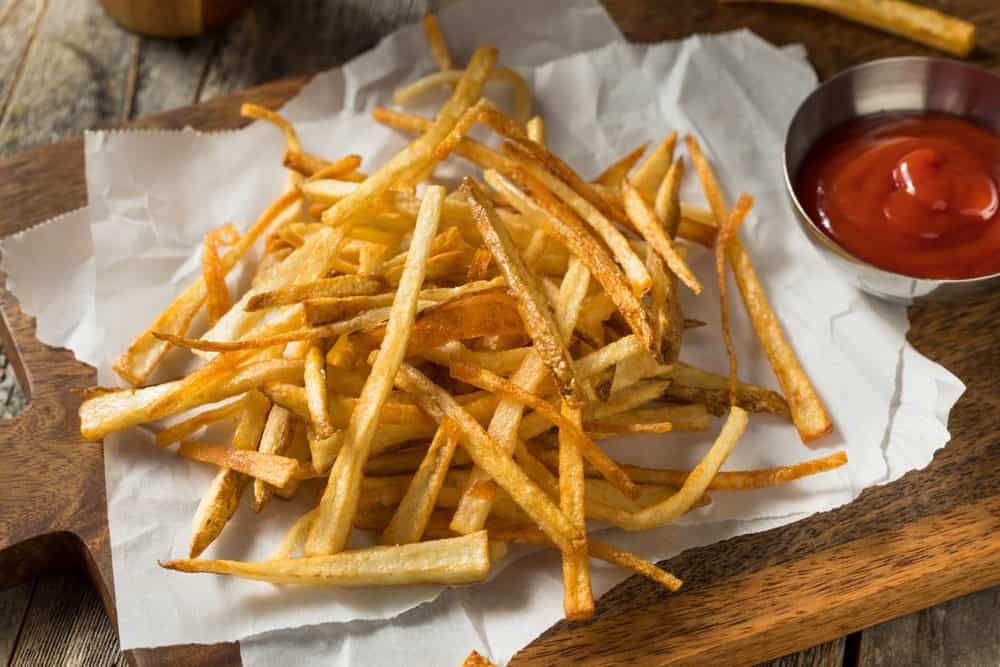
Shoestring fries, as their name suggests, are long, very thin (less than 1/8 inch), and sometimes slightly curled. A tangled cluster of shoestring fries is a popular, tempting side dish that you need to eat quickly by the fork or fingerful – all that surface area means shoestrings get cold and soften quite quickly. It helps to have a mandolin or slicer attachment for a food processor if you want to fry your own shoestrings at home, although it’s certainly possible to cut them by hand too.
4. Matchstick Fries
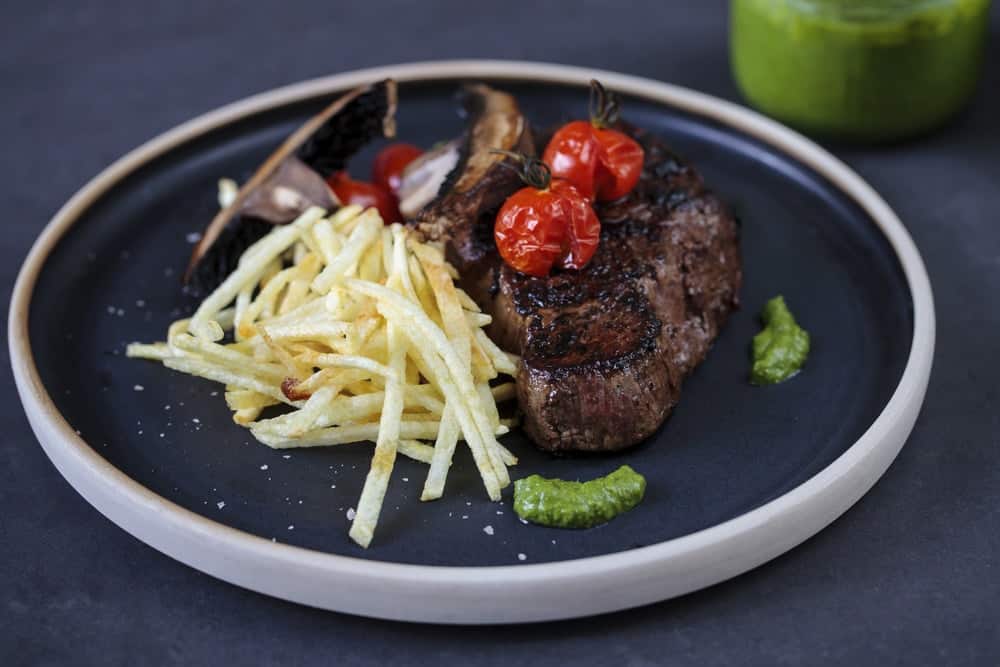
Matchstick fries are skinny, like shoestring fries, but they’re shorter and usually much crispier. In fact, they’re among the crunchiest of all French fries, as they’re so thin that there are almost no soft interior potato parts left after they’re crisped up in the fryer. If you like your fries really, really crispy, matchsticks are for you.
5. Crinkle-Cut Fries
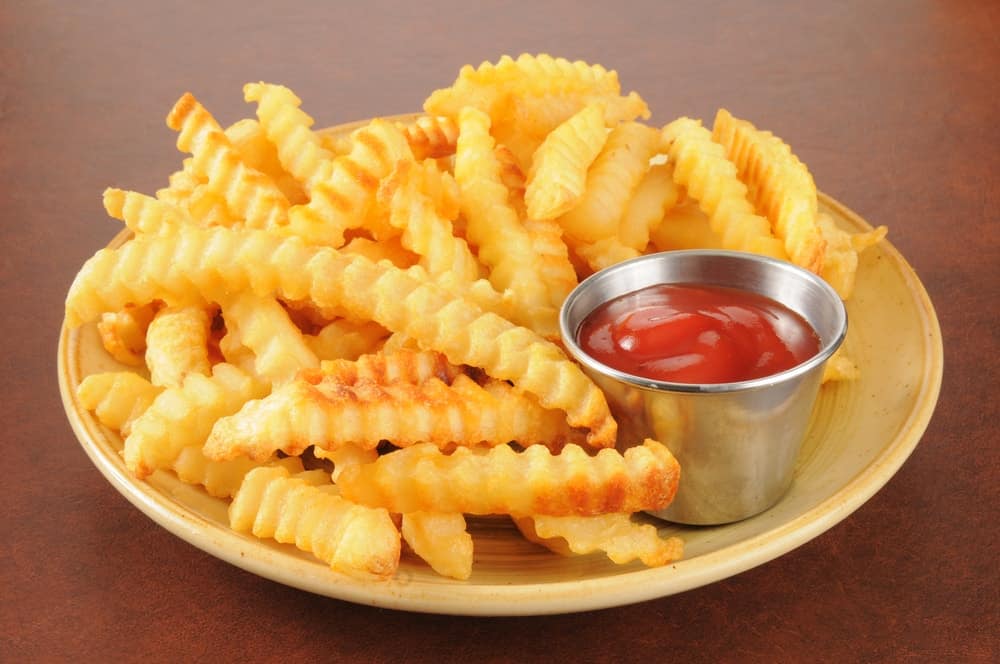
Crinkle-cut fries are just like regular fries, usually on the thicker side but with wavy or crinkly sides and edges. They’re often served in restaurants, and you can buy and bake frozen crinkle-cut fries, but it’s also possible to make the real thing at home from scratch. You need a special crinkle cutter or a crinkle-cutting blade on a mandolin to cut russet-type potatoes into the signature shape. Deep-fry or bake these types of French fries as a fun alternative to regular fries.
6. Waffle-Cut Fries
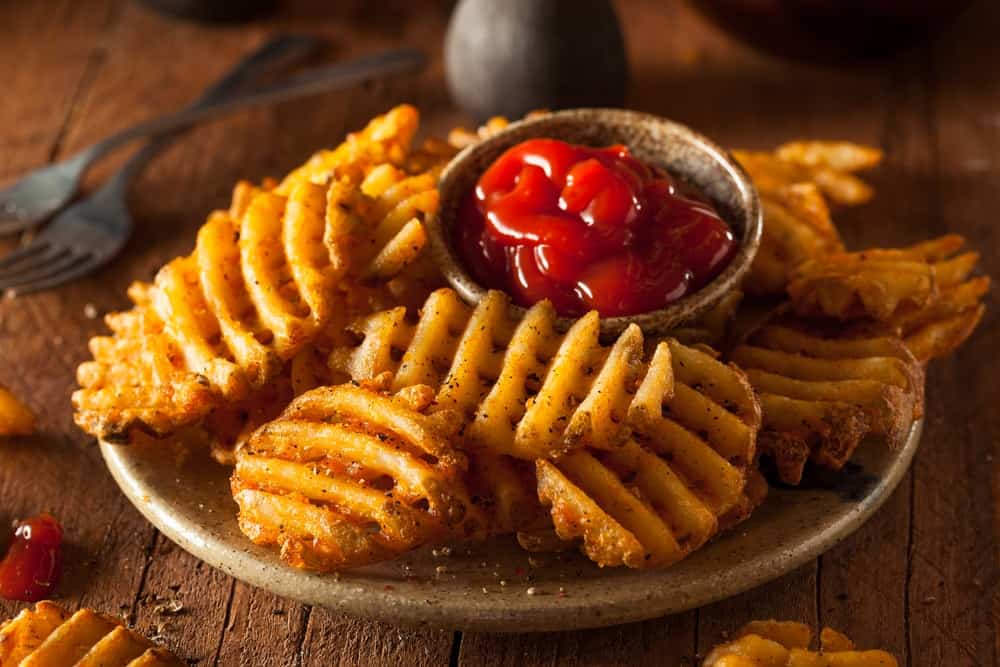
Another of the fun-shaped French fry options is the waffle-cut fry, which calls for a special corrugated slicer or mandolin blade if you want to make them at home. They usually have the potato skin still attached, but you can peel the potatoes if you prefer. Cut the end of a whole potato with the slicer, turn the potato 90 degrees and cut again, and repeat until you have a pile of roundish slabs of potato with corrugated surfaces and a grid of little holes. You might also have waffle-cut fries frozen by the bag. Deep-fry or bake these fries, and the result is a two-bite morsel with a mega surface area for crispness and sauce-soaking.
7. Wedges
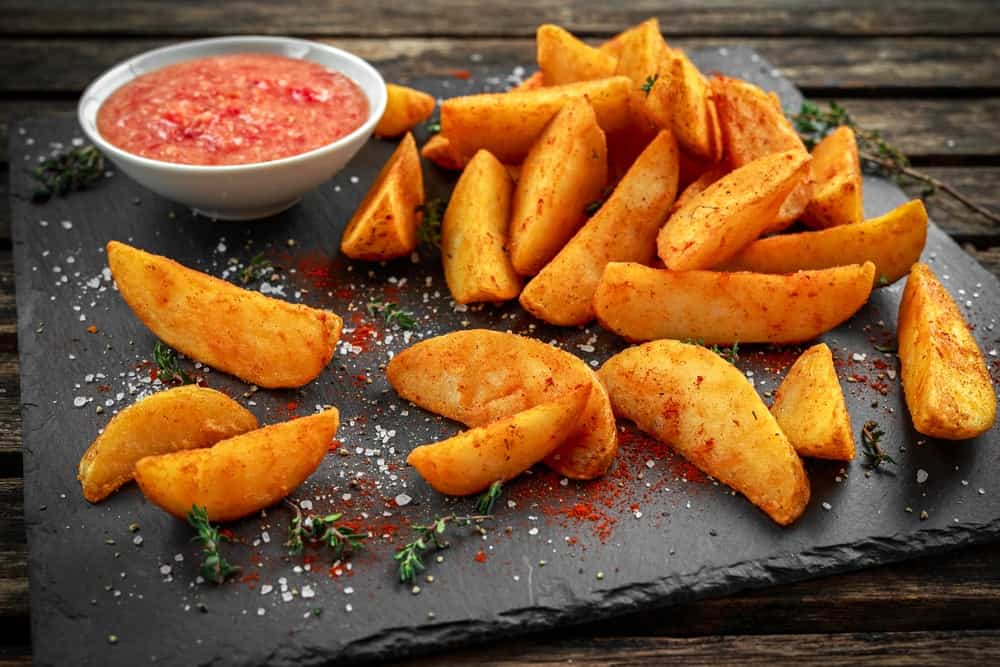
The biggest, weightiest, and potato-iest of all the French fry options is the wedge, made by cutting a whole potato into thick, triangular wedge-shaped segments. They’re often seasoned before baking or deep-frying. If you’re making wedges at home, know that their size means they take a while to cook, so allow them plenty of time in a hot oven if you’re baking/roasting. If you’re deep-frying for a better crisp, consider par-boiling or microwaving the wedges before finishing them in the fryer.
8. Tater Tots
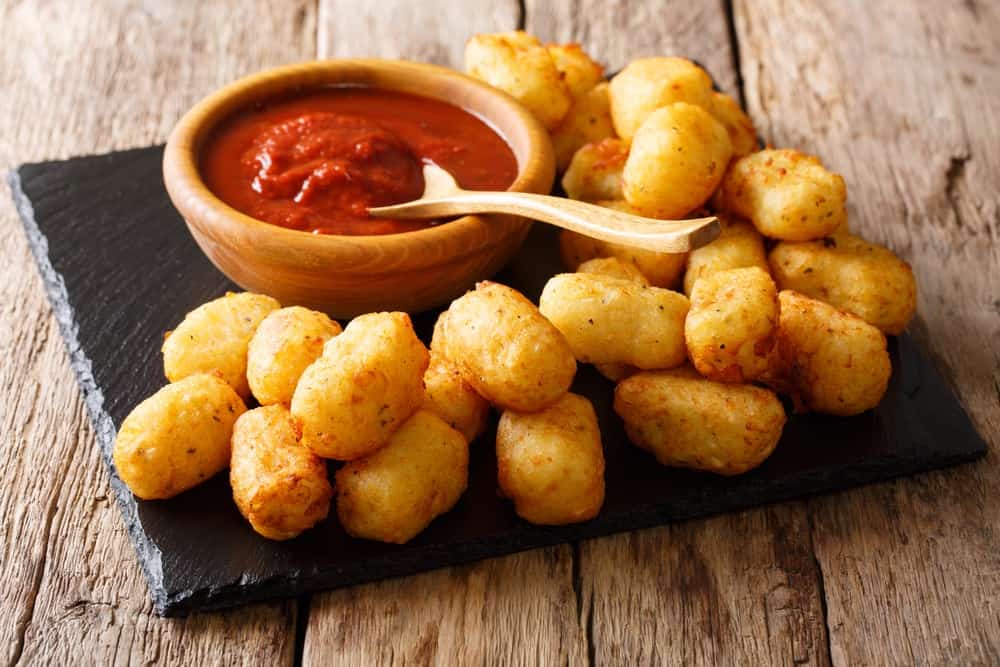
Some might argue they’re not a type of French fry, but what else do you call delicious, bite-sized morsels of fried potato? Either way, Tater Tots (technically a trademark of Ore-Ida) is a childhood favorite that most adults must admit they love too. You can deep-fry, shallow-fry or oven-bake the frozen kind or take a DIY approach. It’s fairly time-consuming, requiring you to parboil potatoes, grate them, form them into the signature cylindrical nugget shape, and then fry or bake the tots, but the results are delightful. Bonus points if you turn them into “Tachos” – those are Tater Tot nachos.
9. Cottage Fries
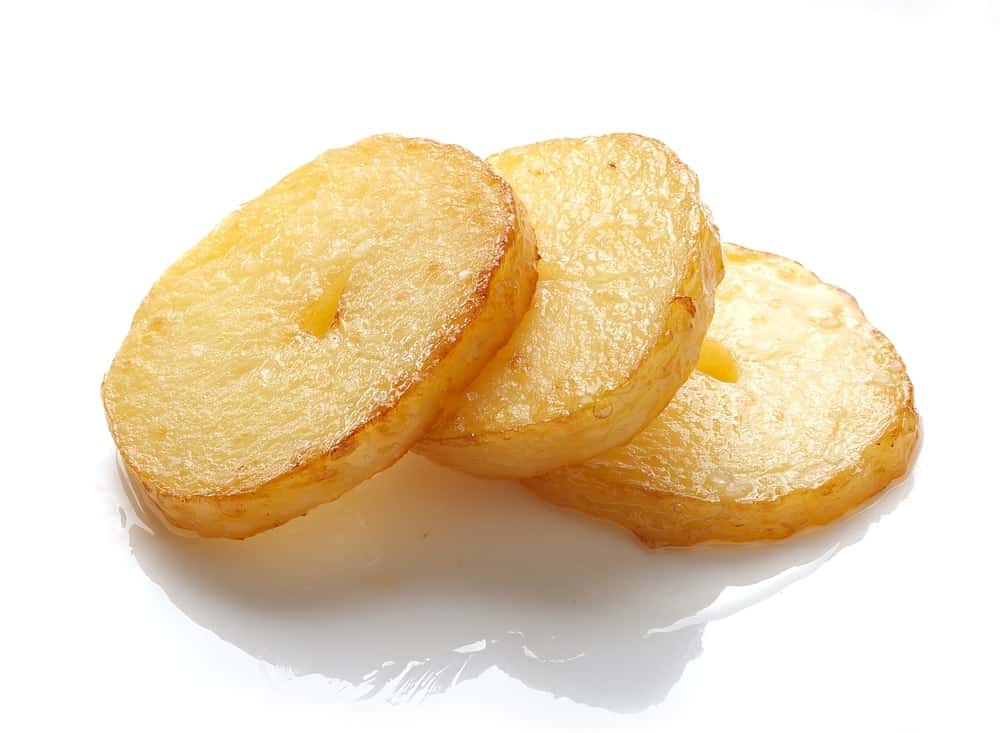
Cottage fries, also known as home fries or round-cut fries, are flat discs cut from a full potato, either peeled or with the skin still on. They can be cut relatively thick or thin and deep-fried, shallow-fried, or baked in the oven. Some frozen versions have a smiley face design. Their large surface area makes cottage fries great for dipping into sauces.
10. Sweet Potato Fries
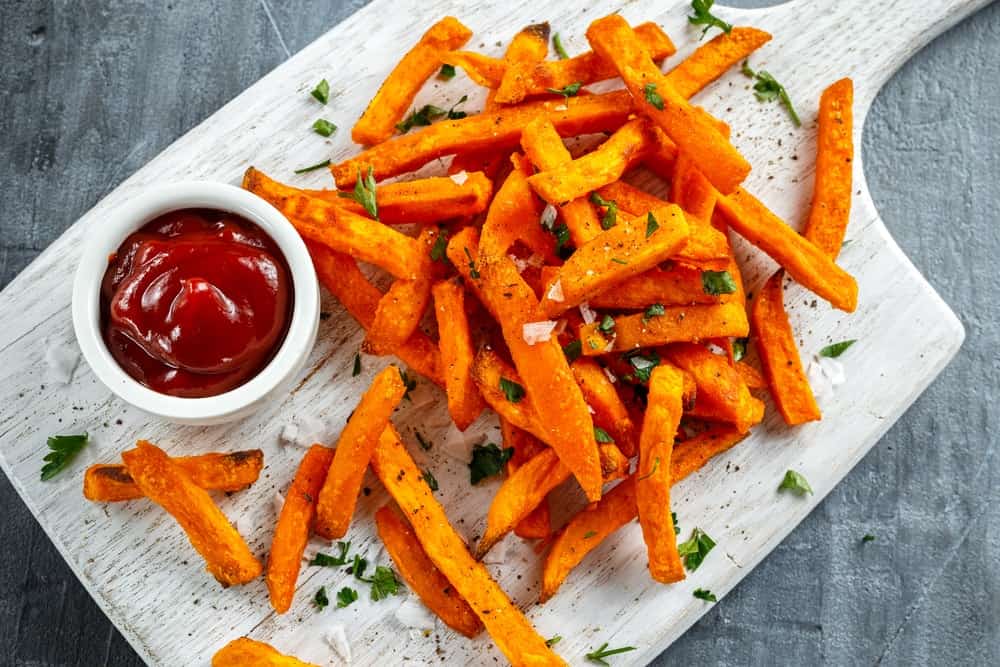
You can very easily substitute sweet potatoes (also known as yams) for regular white potatoes to make any style of fries. Sweet potato fries don’t tend to get as crispy as their white-potato counterparts, but they are more nutritious and offer a sweet flavor and creamy texture that many people love. And remember, you don’t really have to choose one or the other – there’s room in your life for all kinds of French fries!
11. Chips
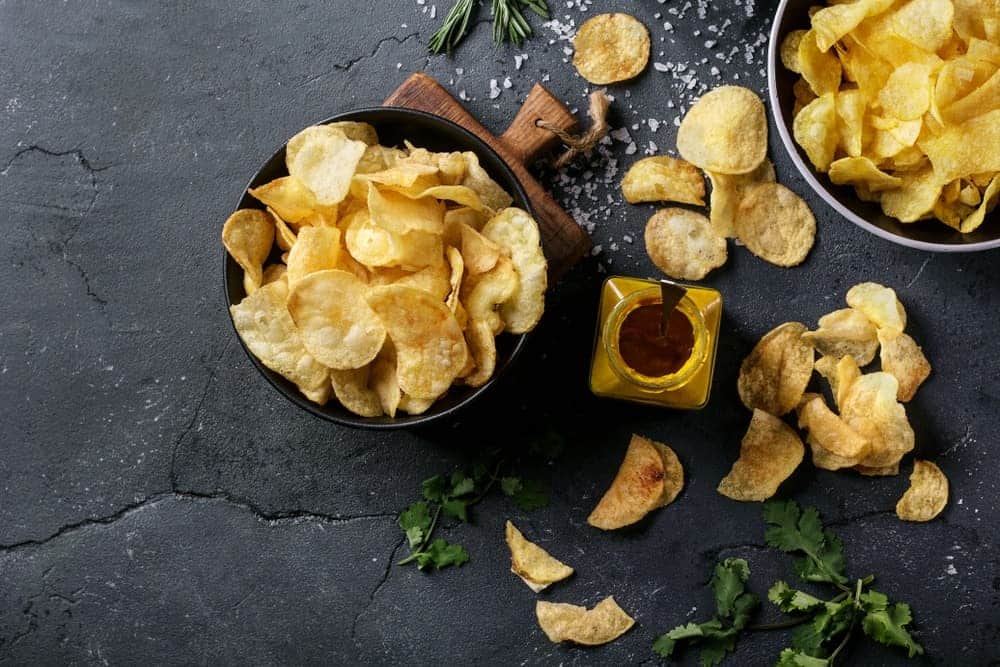
Chips definitely belong on any list of styles of fries – consider them the thinnest, crispiest fry of them all. If you enjoy eating chips from a bag, you’ll love making your own at home, which is best done with a mandolin for thin, even slices of potato. The oven doesn’t offer the crispy results you need, so deep-fry your home-cut chips in hot vegetable, canola, corn, or peanut oil. Let them cool on a wire rack to maintain crispness, and toss them with salt or other seasonings before devouring.
12. Curly Fries
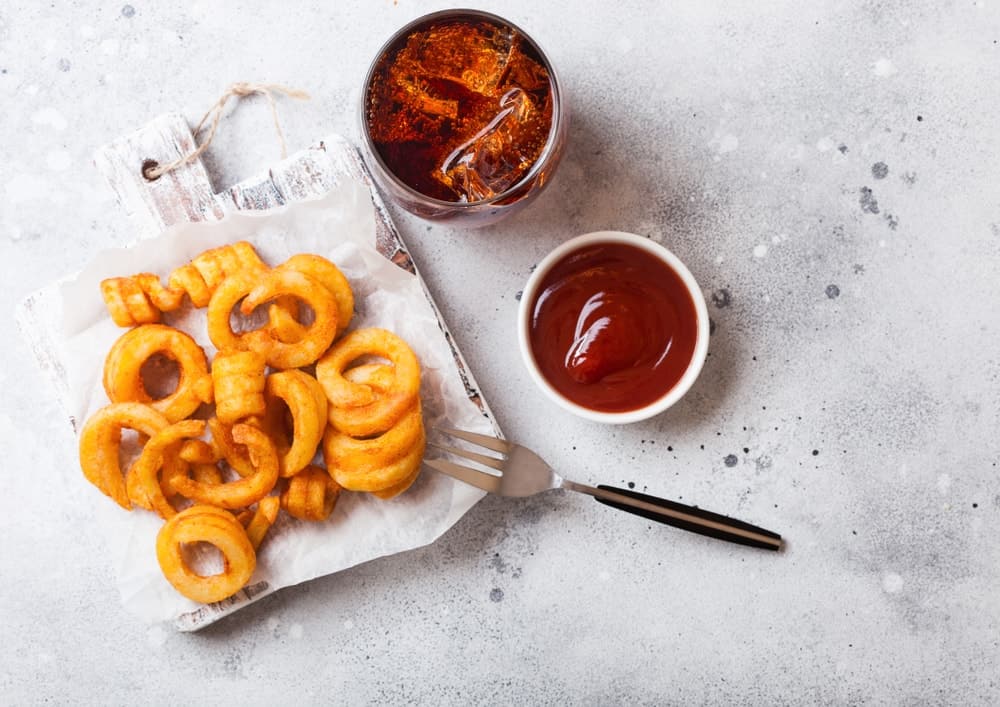
Curly fries, which are seasoned potatoes cut into a spiraling, curlicue shape and fried, used to be a delicious option available only in restaurants that have their own special cutter or from a bag of frozen curly fries. Now, spiralizer tools are available everywhere, so you can cut your own spiral fries to deep-fry at home. Kids especially enjoy the shape of curly fries, which tend to be on the softer, thicker side of the French fry spectrum.
13. Chip Shop Chips
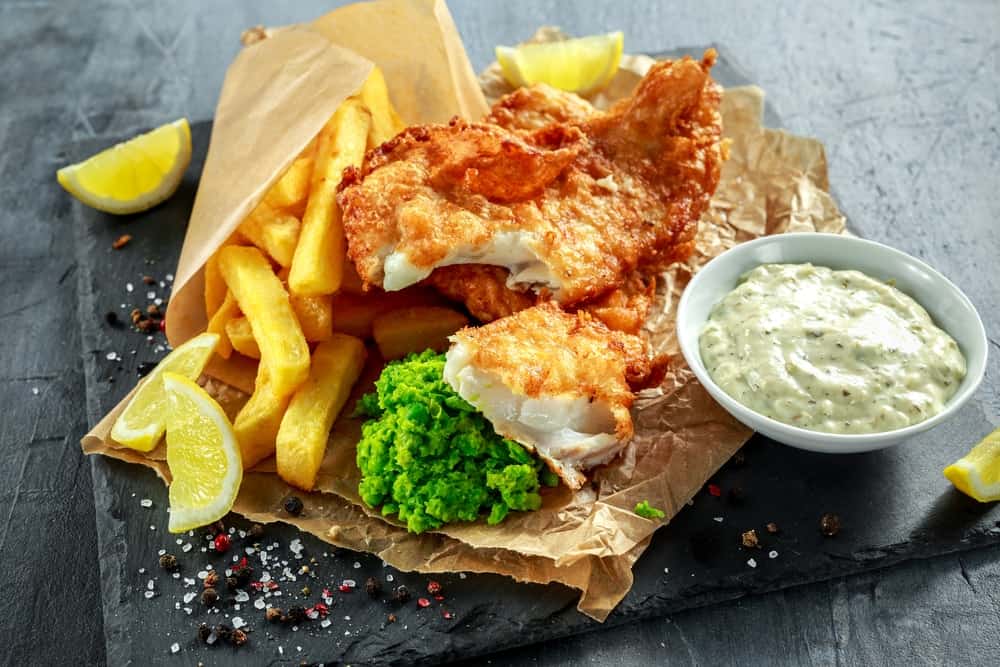
The delicious potato preparation known as French fries in the United States is called chips in Britain, home of the traditional fish and chip shop. The fries/chips served up alone or alongside fried, battered fish, deep-fried battered sausages, and other greasy delights are in a style of their own. They’re cut short, chunky, and square-ish, with very soft insides and only slightly crisp exteriors. The authentic seasonings are salt and malt vinegar, and chip shop chips always come wrapped in paper. True Brits use a little, two-pronged wooden fork to eat their chips – look for them on the counter at the chip shop.
14. Home Fries
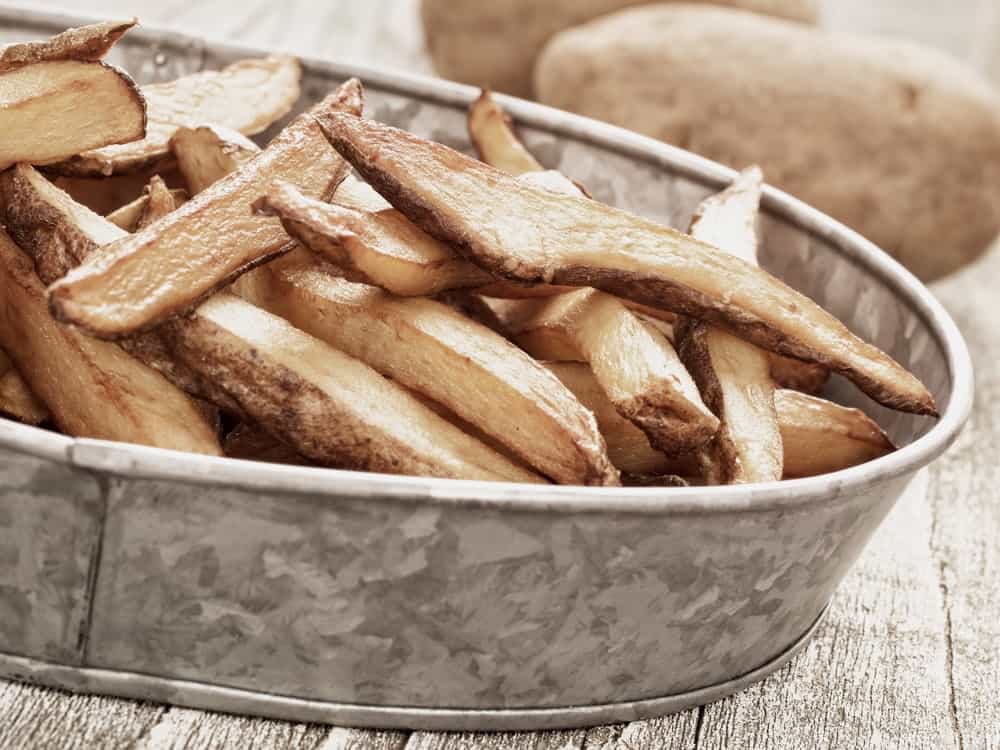
Home fries are chunks of potato – an irregular dice, if you will – cut to any size from around 1/2 inch to 1 inch or more across, usually with the skins still on. They’re either deep-fried or shallow-fried, but par-cooking the potato chunks first by boiling or microwaving helps them get nice and crispy with soft, perfectly cooked insides. Home fries are usually served for breakfast alongside eggs, bacon, and/or sausage, but there’s no stopping you from eating them at any time of the day. They are especially good dipped into a soft egg yolk, though.
15. Oven-baked Fries
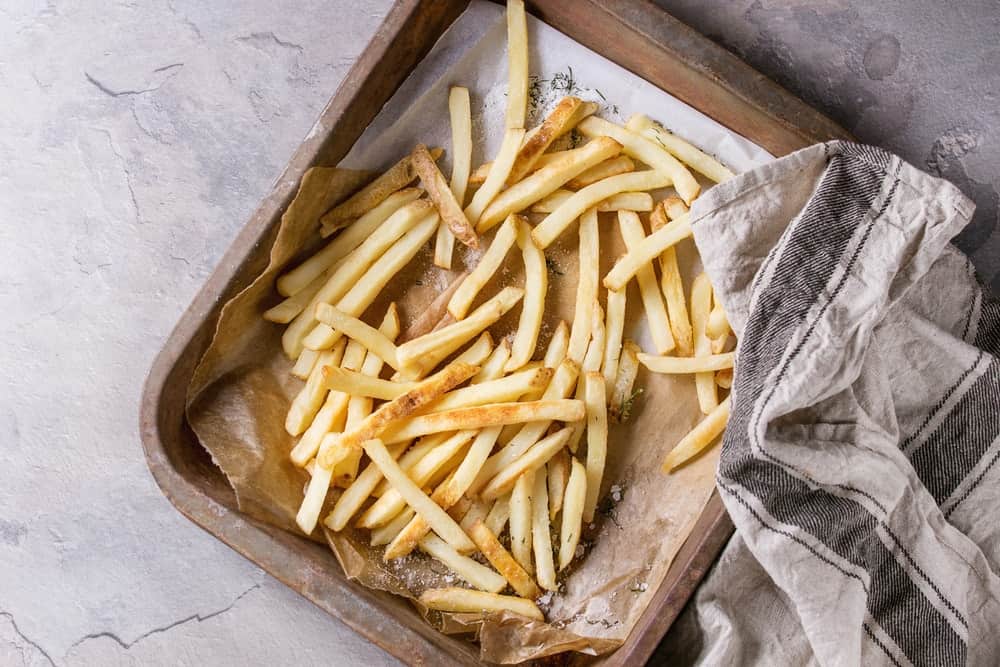
It’s possible to oven-bake pretty much all types of French fries instead of deep-frying them, which cuts down considerably on the fries’ calorie count. You still need to toss cut potatoes in at least a little oil before baking them to get a nice crisp exterior, but it’s a tiny amount compared to the volume of oil needed for frying. There’s no point in pretending that oven-baked fries are as good as the real thing, but they are still pretty good in their own right.
16. Bistro Fries
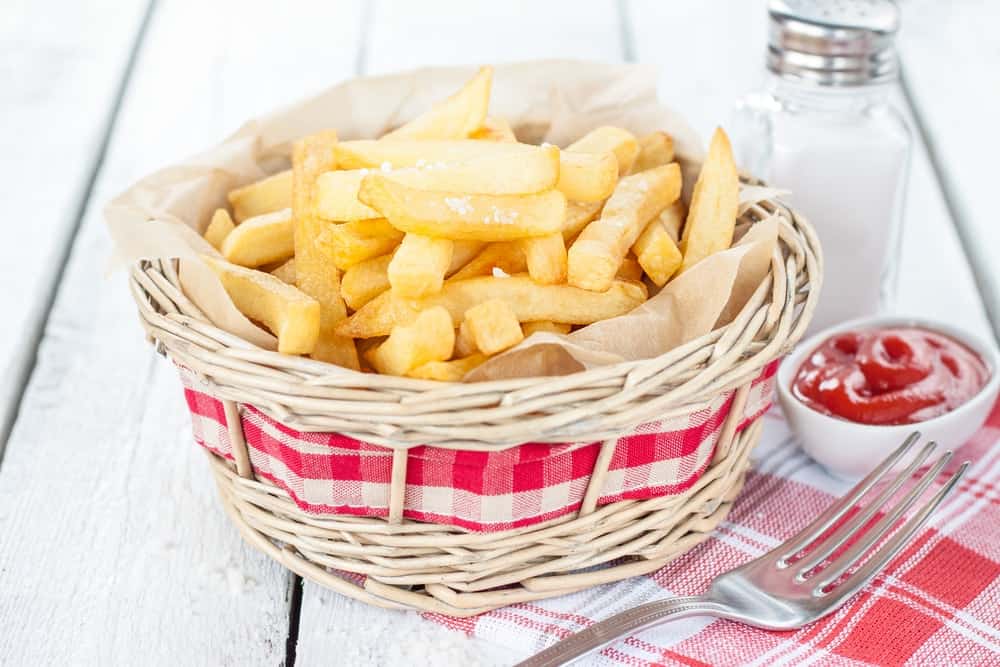
If you see the term “bistro fries” on a menu or recipe, know there’s no strict definition of the style, but it’s loosely inspired by the perfectly crispy-outside-fluffy-inside fries served in French or Belgian bistros. The cut is medium size and length, and the color of the cooked fries is a light golden brown. Techniques vary, but most bistro fries are either blanched (briefly boiled)and deep-fried or alternatively deep-fried twice at different oil temperatures to achieve the ideal texture.
17. Boardwalk Fries
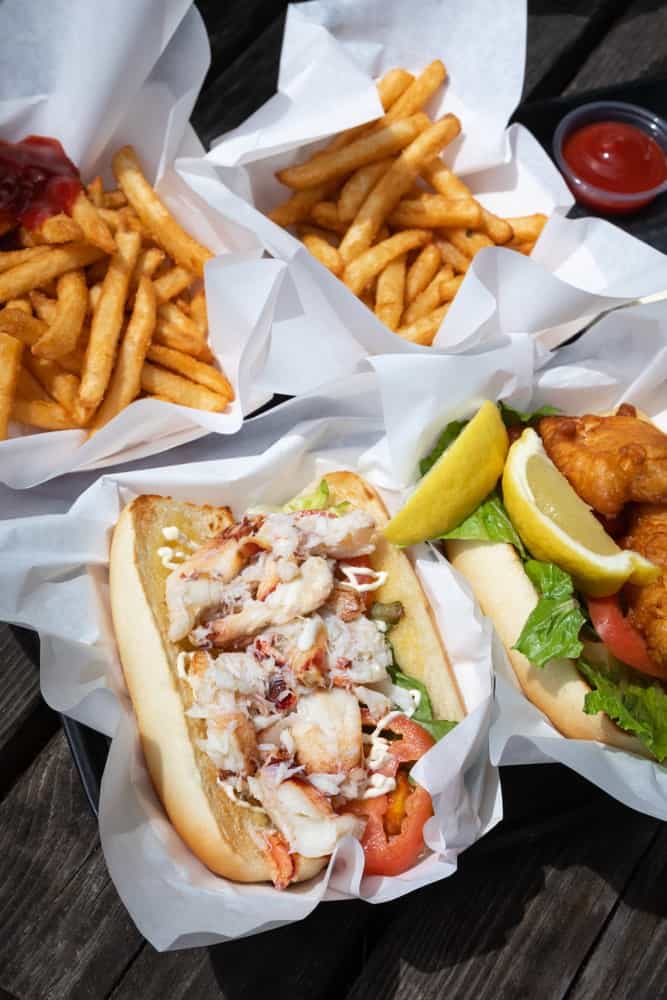
Boardwalk Fries get their name from the boardwalk of Ocean City, Maryland, where they’ve been served to locals and visitors for many decades. They have to be hand-cut to medium size, cooked to order (by deep-frying), and served as hot and crisp as can be. The classic seasonings are salt and vinegar only. Some say the secret is soaking the cut potatoes in saltwater before they’re fried twice at different temperatures.
18. Tornado Fries
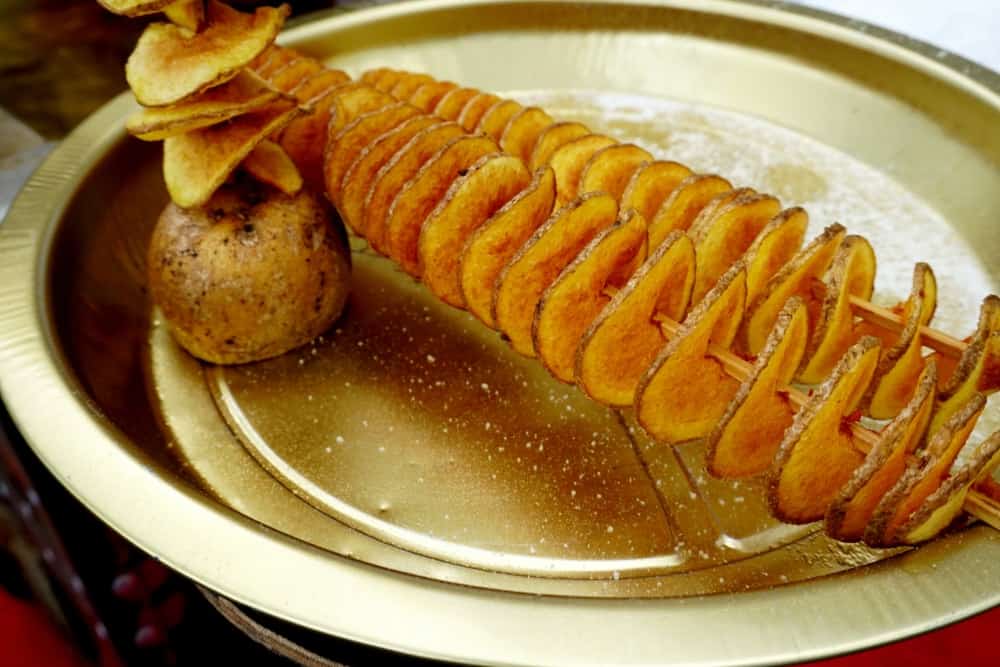
The name “tornado fries” makes sense when you see one of these treats, often served at carnivals and fairs. A whole potato is cut into a spiral, which is fanned out to resemble a Slinky toy, a spring, or, wait for it… a tornado. The creation is skewered and deep-fried to a crisp, then eaten in the
manner of a salty, savory lollipop.
19. Pommes Souffle
Pommes souffle, also known as puffed potatoes, are tricky to make but undeniably impressive (and tasty) if you do so. This fancy style of fries starts with potato slices sculpted into oblong shapes. These are deep-fried twice, with the second frying session at a higher temperature that causes the fries to puff up, filling with air to resemble crispy French fry balloons. Serve them immediately before they deflate.
20. Seasoned Fries
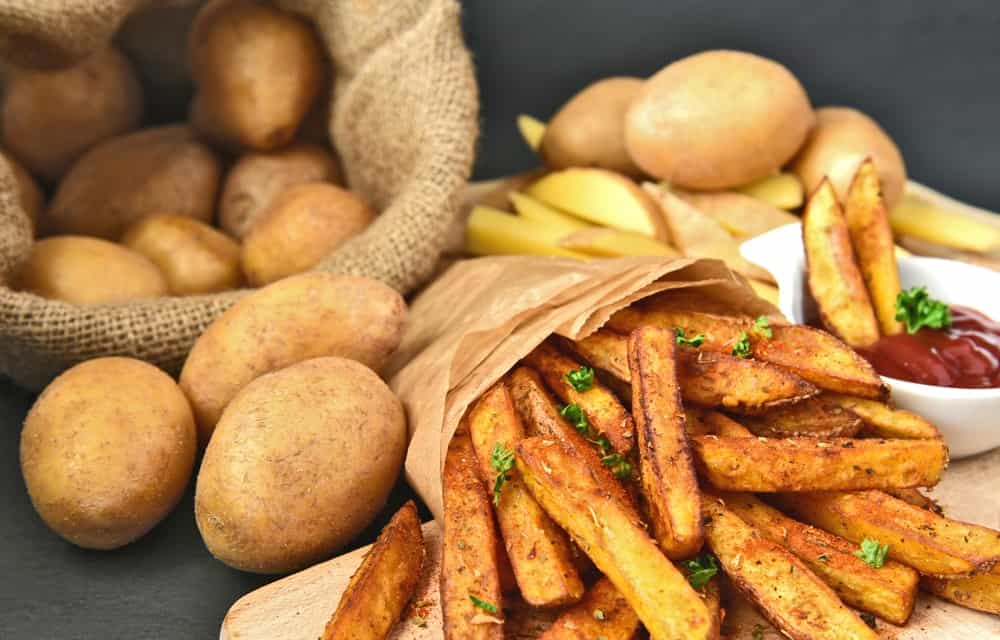
Seasoned fries are simply any style of French fries that are seasoned before they’re served, as opposed to plain fries that diners can season themselves on their plate. The term can refer to French fries that have a seasoned coating added before they’re cooked (most common with fast food fries and frozen types of fries) or to freshly made fries tossed with herb or spice blends, such as black pepper, seasoned salt, Cajun spice or Old Bay.
21. Garlic Fries
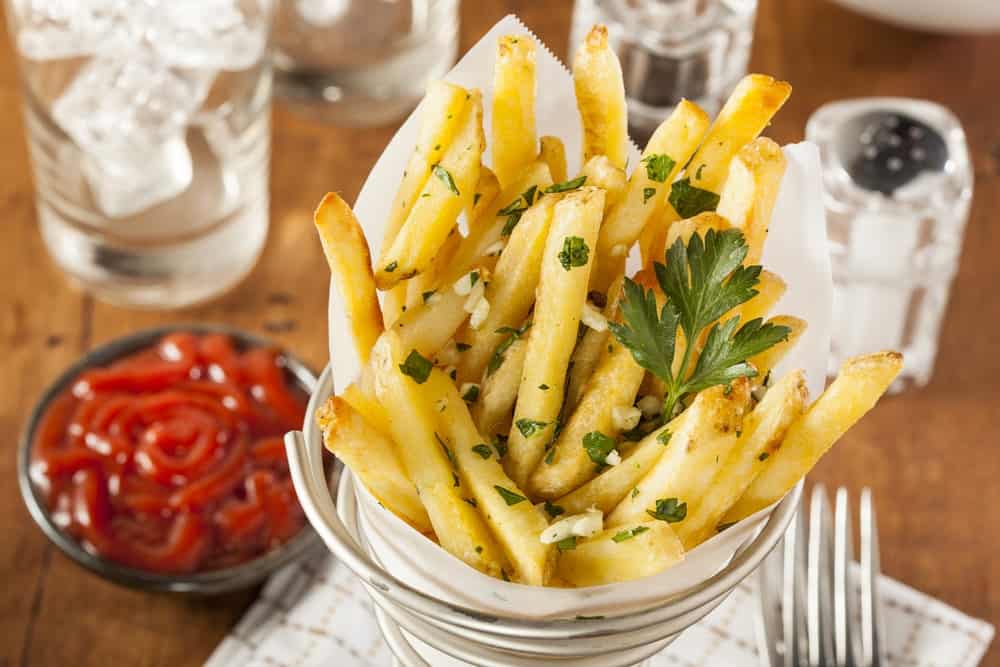
Seasoning home-cooked French fries with garlic is an easy way to make them more gourmet, and garlic fries are a popular menu item in restaurants. Most versions toss just-cooked fries with sautéed minced garlic and finely chopped parsley, but you can substitute dried garlic and parsley too. Many versions further boost the flavor by adding Parmesan cheese, garlic, and parsley.
22. Truffle Fries
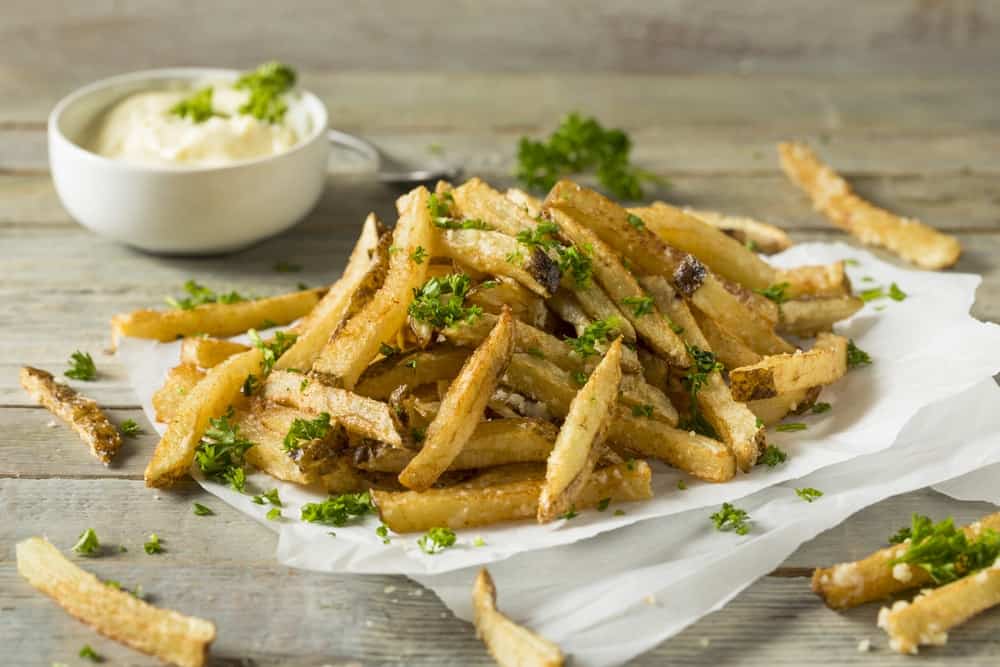
The fanciest of all the French fry options, truffle or truffled fries, often appear on the menus of more expensive restaurants. They’re French fries that are seasoned with either a tiny amount of potent truffle oil or light shavings of fresh truffles, often with parsley and Parmesan too. The truffle flavor packs a delicious umami punch and puts a definite gourmet twist on everyone’s favorite potato preparation.
23. Animal-style Fries
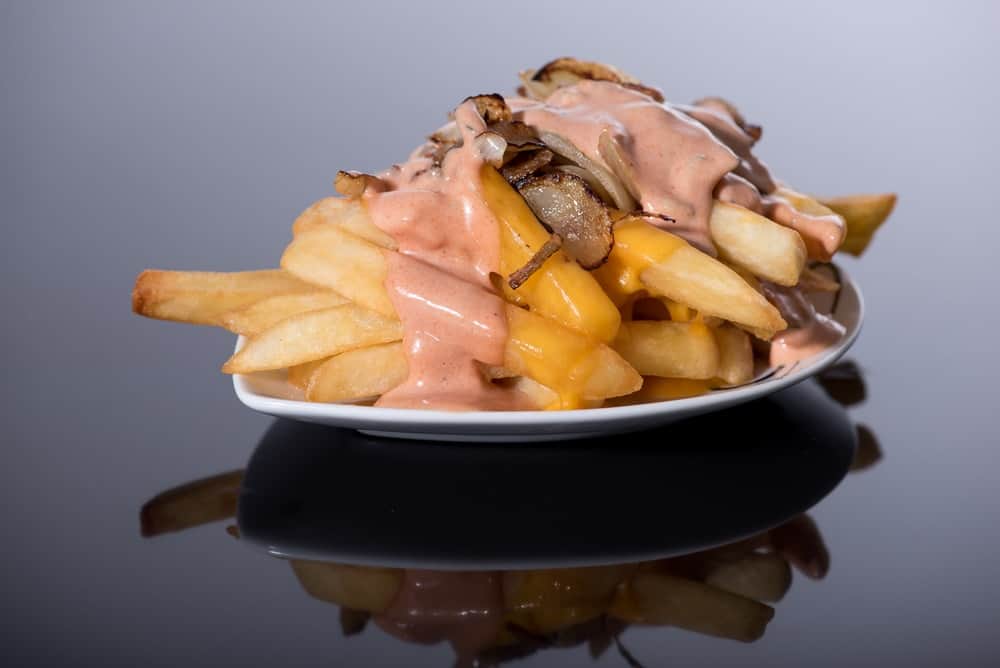
Animal-style fries are famous on the West Coast, where they’re part of the popular hamburger chain In ‘n’ Out’s (not-so) “secret” menu. Ask for your hand-cut fries at the burger joint to be “animal style,” and they’ll come topped with shredded cheese, grilled onions, and house sauce, which is similar to thousand island dressing. You don’t need to head west to enjoy this style of French fries, though, as it’s very easy to replicate at home.
24. Cheese Fries
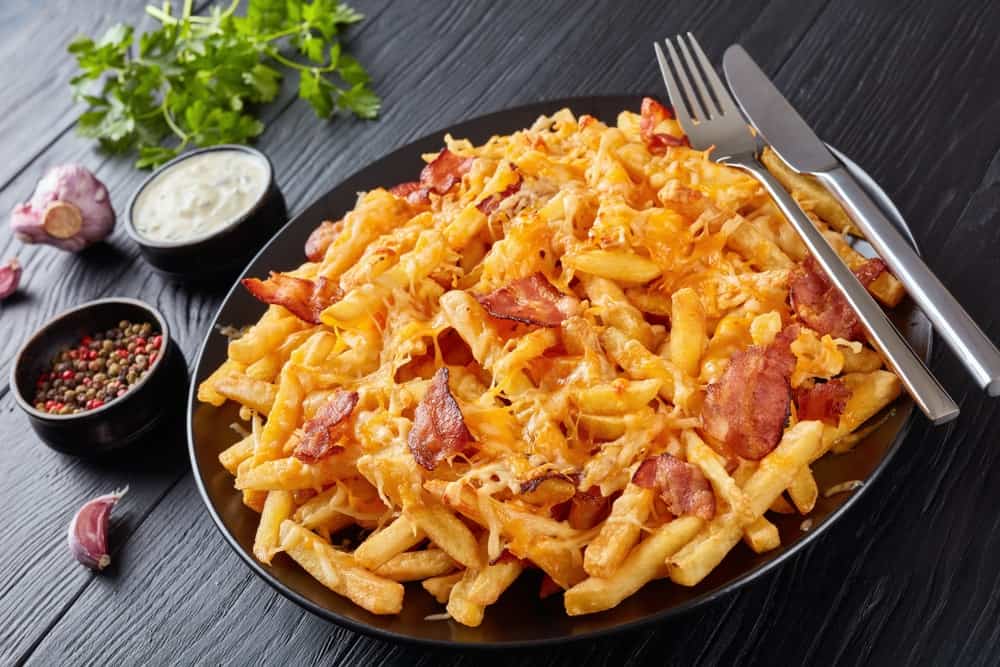
Cheese fries, in their most basic form, are fries with cheese on top, but delicious cheese fries require that topping to be melted, either from the heat of fries just out of the fryer or by broiling or baking the topped fries for a minute or two. Whether grated, crumbled, or as a cheese sauce, opt for one or several kinds of cheese that have a nice flavor and melt well, such as Cheddar, Gruyere, Parmesan, and Jack.
25. Chili Cheese Fries
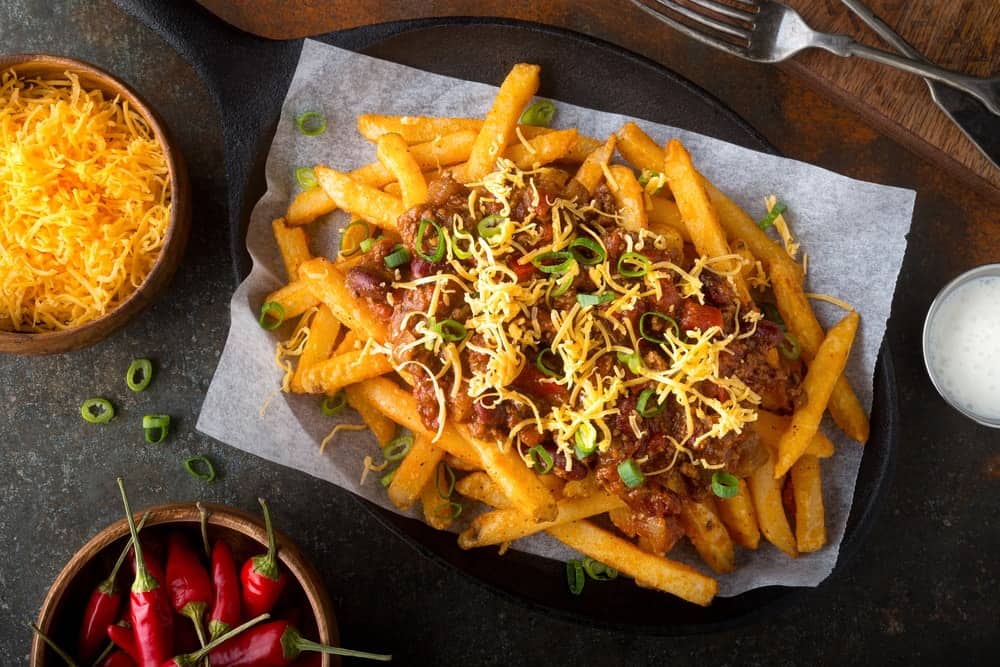
Take cheese fries one step further and add a layer of tasty chili between the fries and cheese. It could be a beef, turkey, or vegetarian chili, from a can or homemade. Additional topping options include diced raw onions and hot sauce. You definitely need a fork and a pile of napkins to enjoy this potentially messy treat, which could be a substantial, shareable side dish or a full entrée on its own.
26. Poutine
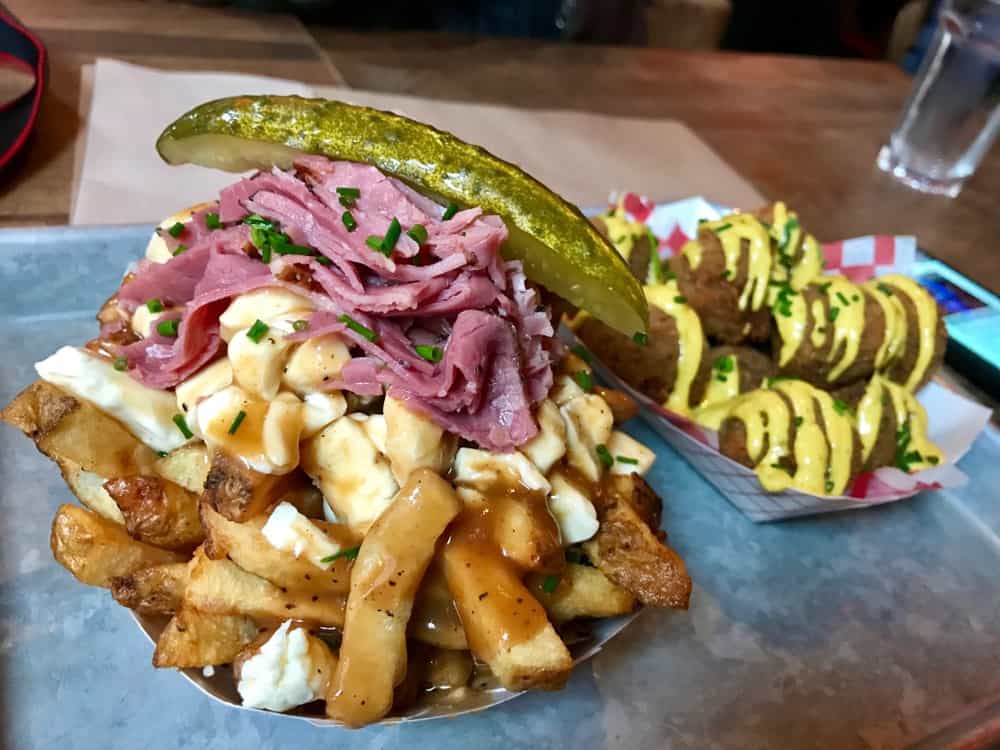
Poutine, a French fries-based dish from Quebec, is devoured by Canadians as a snack, side dish, and meal alike and served at venues ranging from food trucks to high-end sit-down restaurants. The unusual creation comprises regular French fries, fresh cheese curds, and gravy, and once you’ve tried it, you’ll be planning a return trip to Canada to get some more.
27. Patatas Bravas
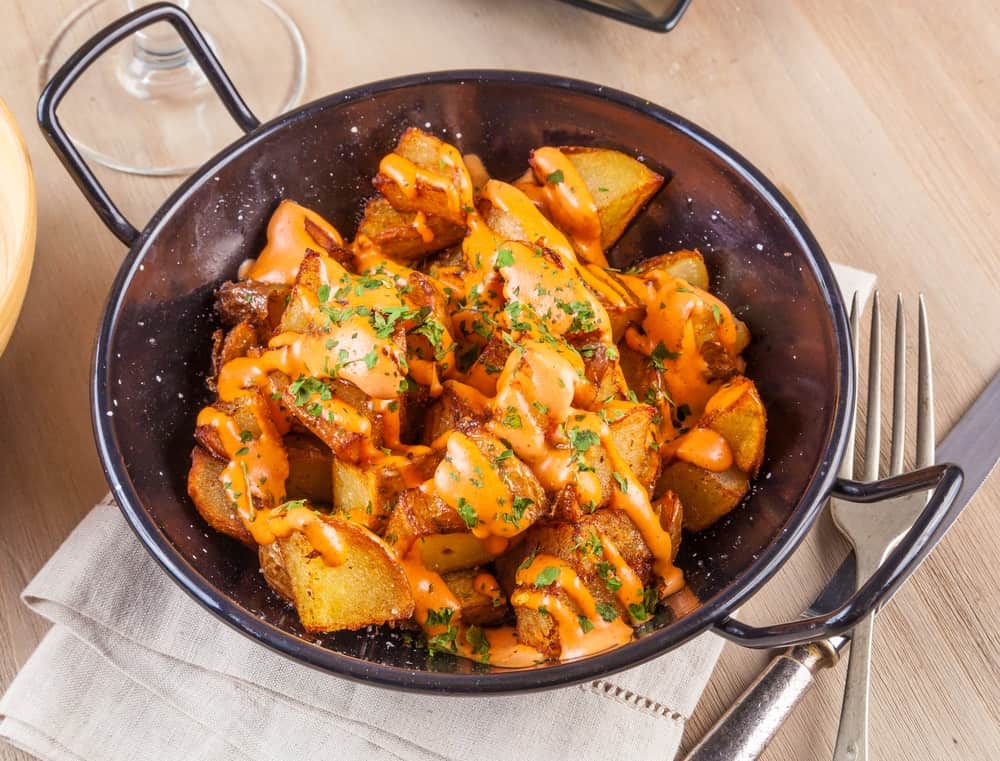
A Spanish dish often served as tapas, patatas bravas is fairly large pieces of potato (about three bites each) that are par-boiled and then fried to a crisp. In Spain, they’re traditionally served with a spicy tomato sauce for dipping, although in some regions, a similar fried-potato tapa comes with aioli.
28. Potato Skins
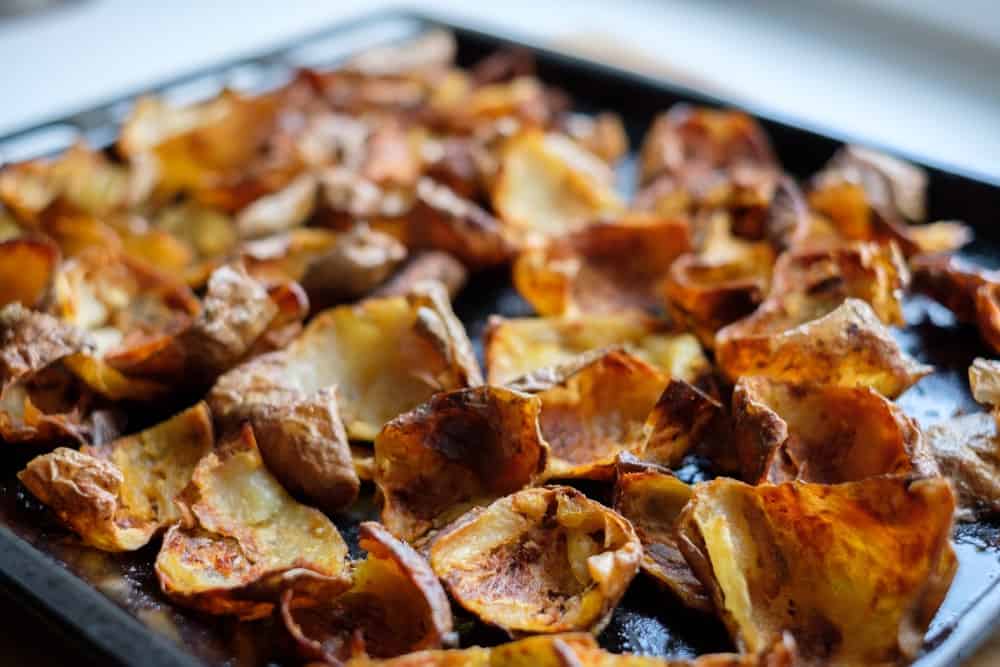
Imagine you eat just the fluffy middle of a baked potato but leave behind the skins with a layer of potato (1/4 to 1/2 inch or so) still attached. Now deep-fry those potato skins until they’re crunchy on the skin side and golden on the potato side; put them on a plate and add toppings like cheese, sour cream, green onions, crumbled bacon, chili, and cheese, or anything else you can imagine. These are potato skins, an amazing appetizer, side dish, or even entrée that take the notion of French fries to new and delicious heights.
29. Carne Asada Fries
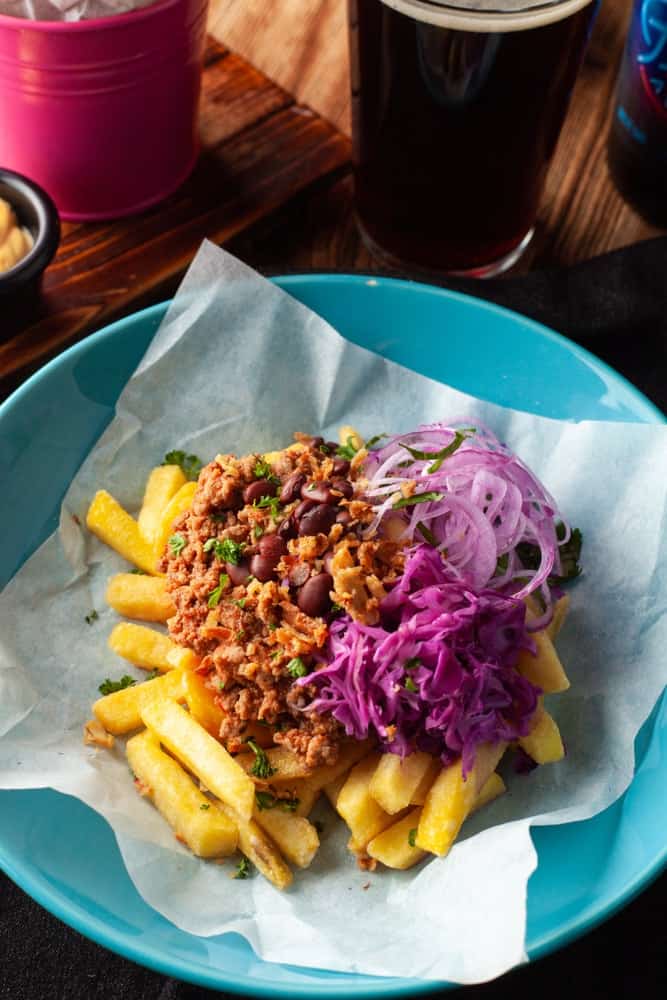
Carne asada fries are French fries turned into a whole meal with Mexican-inspired flavors. They’re fries topped with carne asada (seasoned flank or skirt steak, grilled and sliced thin) and cheese, plus more toppings like guacamole, salsa, sour cream, and shredded lettuce. This dish is a specialty of San Diego, where they also stuff the same ingredients – fries and all – into an eponymous burrito.
30. Patatje Oorlog
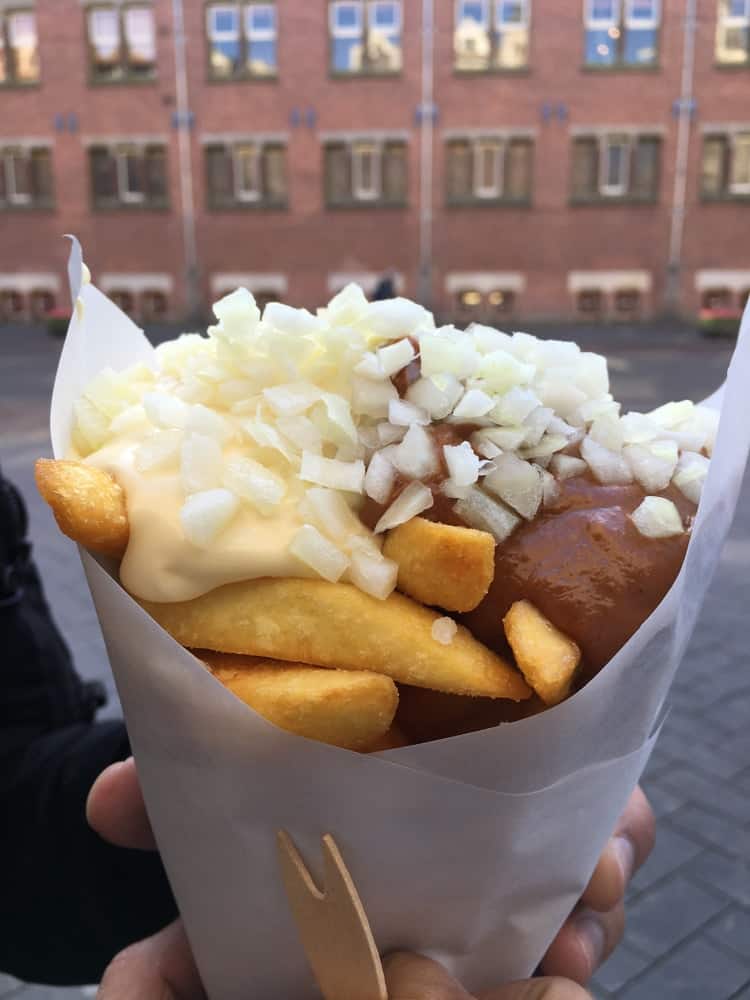
If you’re ever in Belgium and see “patatje oorlog” (it means “war fries”) on a menu, go ahead and order this unusual combination of French fries, mayonnaise, raw onions, and an Indonesian-style satay sauce. The street food combining the flavors of Belgium and Southeast Asia is so popular it’s spread to Scandinavia and other European countries, so you might see it elsewhere too. Unfortunately, this French fry style has yet to make it big stateside, but there’s nothing stopping you from preparing it yourself.
FAQs
Why are French fries called French fries?
Whether you prefer them crispy or soft, there’s no denying that French fries are a staple food item for billions worldwide. But what about their origins? Some believe that these fried potatoes were first created in France hence the name “French fries,” while others argue for Belgium is the true birthplace of the dish. Despite differing opinions, we can all agree on one thing: these delicious fries have captured our hearts and stomachs!
How to reheat French Fries
Check out our post: How to Heat Up McDonald’s French Fries.
